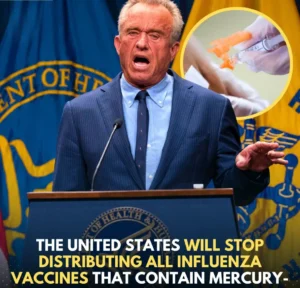
U.S. Health Secretary Robert F. Kennedy Jr. has announced that the United States will no longer distribute influenza vaccines containing the mercury-based preservative thimerosal.
This decision comes after a recommendation from the Advisory Committee on Immunization Practices (ACIP), which Kennedy recently restructured.
The move has stirred controversy, as thimerosal has been used in vaccines for decades to prevent microbial contamination, and numerous studies have shown no link to autism or other health issues. However, Kennedy maintains that removing thimerosal will help address public concerns and restore trust in the nation’s vaccine programs.
Critics, including some public health experts, argue that the policy is driven by misinformation and could erode confidence in vaccines.
The change may impact vaccine availability, especially in areas that rely on multi-dose vials, such as rural clinics and nursing homes.
Vaccine manufacturers like Sanofi and CSL Seqirus have confirmed they can meet the new requirements by providing thimerosal-free options.
This shift marks a significant change in U.S. vaccine policy, reflecting Kennedy’s longstanding stance on vaccine safety.
It remains to be seen what the broader implications of this decision will be, particularly in terms of public health and vaccine access.
As the policy unfolds, the nation will be watching closely to assess its effect on both the health landscape and vaccine-related controversies.




